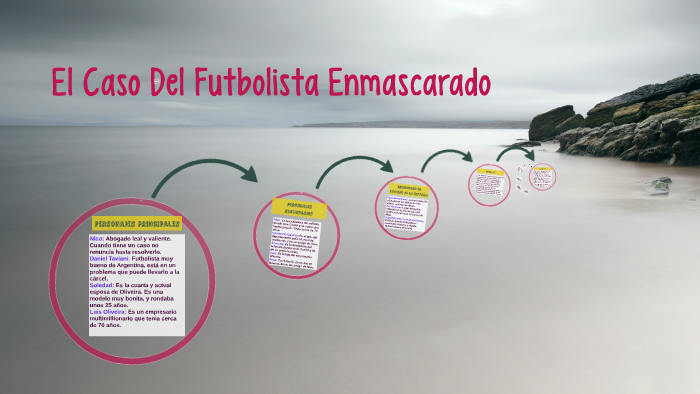Breaking Bread With Scholars: Strategies For Engaging In Academic Conversations

Table of Contents
Academic conversations encompass far more than just lectures. They include discussions in seminars, debates at conferences, presentations at workshops, and even online forums and social media exchanges. Effective engagement in this realm fosters intellectual growth, strengthens professional networks, and opens doors to career advancement. This article aims to equip you with the tools for successful participation in academic discourse and scholarly communication, ultimately enhancing your intellectual engagement.
Preparing for Meaningful Academic Conversations
Before you even enter the conversation, thorough preparation is key. This involves not just understanding the topic, but also understanding your audience and how best to present your ideas.
Research and Knowledge Acquisition
Thorough background research is foundational to meaningful academic discourse. A solid understanding of the subject matter provides the bedrock for your contributions. This means:
- Identify key authors and publications: Explore existing literature to understand the current state of the field, identifying key players and influential works. This forms the basis of your literature review.
- Summarize opposing viewpoints: Academic conversations rarely have a single, universally accepted answer. Understanding different perspectives allows you to engage more thoughtfully and constructively.
- Formulate your own informed opinion: Based on your research, synthesize the information and develop your own unique perspective. This will allow you to contribute meaningfully to the debate. This process contributes to your subject matter expertise.
Understanding the Audience and Context
Tailoring your communication to your audience is critical for effective academic discourse. Consider:
- Consider the audience's prior knowledge: Are you speaking to experts or novices? Adjust your language and depth of explanation accordingly.
- Choose appropriate language and tone: Formal settings might require a more formal tone than casual discussions. Always strive for clarity and precision. Be mindful of your communication styles and how they might be perceived.
- Be mindful of cultural differences: In an increasingly globalized academic world, cultural sensitivity is paramount. Be aware of potential nuances in language and communication styles. Audience analysis helps ensure your message is well-received.
Structuring Your Arguments
Clear, concise, and well-supported arguments are crucial for successful scholarly communication. This involves:
- Develop a strong thesis statement: Your central argument should be clearly articulated and readily apparent.
- Use evidence to support claims: Back up your assertions with credible evidence, citing sources appropriately. This demonstrates evidence-based reasoning.
- Anticipate counterarguments: Consider potential objections to your position and address them proactively. Strong argumentation involves anticipating and addressing opposing views.
Participating Effectively in Academic Conversations
Preparation is only half the battle; effective participation requires active listening, respectful communication, and thoughtful engagement.
Active Listening and Critical Thinking
Attentive listening is as vital as speaking. It allows you to fully grasp the arguments of others and to respond meaningfully. This means:
- Pay close attention to others' arguments: Focus on understanding the speaker's message before formulating your response.
- Identify strengths and weaknesses in arguments: Critical analysis allows you to assess the validity and soundness of different viewpoints.
- Ask clarifying questions: Don't hesitate to ask for clarification if something is unclear. This shows engagement and helps to facilitate a deeper understanding. Questioning techniques are key to stimulating productive discourse.
Respectful and Constructive Dialogue
Academic discourse thrives on respectful communication and constructive criticism. Remember to:
- Express your ideas clearly and respectfully: Even when disagreeing, maintain a respectful tone.
- Respond thoughtfully to others' points: Avoid interrupting or dismissing others' contributions.
- Avoid personal attacks: Focus on the ideas, not the individuals presenting them. This fosters civil discourse. Respectful communication is essential for building a positive academic environment.
Utilizing Nonverbal Communication
Nonverbal cues play a significant role in conveying engagement and respect. Pay attention to:
- Maintain appropriate eye contact: This shows attentiveness and respect.
- Use open and inviting body language: Open posture conveys receptiveness and encourages participation.
- Be mindful of your tone of voice: Your tone can significantly impact how your message is received. Effective communication skills encompass both verbal and nonverbal aspects.
Expanding Your Academic Network
Engaging in academic conversations is not just about contributing to discussions; it's about building relationships and expanding your professional network.
Seeking Mentorship and Collaboration
Mentorship provides invaluable guidance and support. Consider:
- Identify potential mentors: Seek out experienced scholars whose work you admire.
- Seek feedback on your work: Constructive criticism helps refine your ideas and improve your writing and presentation skills.
- Collaborate on research projects: Collaboration enhances learning and expands your network. Networking is crucial for career development in academia.
Attending Conferences and Workshops
Academic conferences and workshops provide unparalleled opportunities for networking and learning. Remember to:
- Prepare questions in advance: This demonstrates engagement and shows that you've done your homework.
- Engage in discussions: Actively participate in question-and-answer sessions and informal conversations.
- Exchange contact information: Networking is key to building long-lasting professional relationships. Professional development opportunities often arise from networking at conferences and workshops.
Online Engagement
Online platforms offer valuable opportunities for participating in scholarly communication. Effective online engagement involves:
- Contribute to online forums: Share your insights and engage in discussions on relevant topics.
- Engage in scholarly online discussions: Participate in online debates and conversations.
- Follow relevant scholars and organizations: Stay updated on the latest research and developments in your field. Digital scholarship is increasingly important for academic participation.
Conclusion: Mastering the Art of Breaking Bread with Scholars
Mastering the art of academic conversation involves preparation, active listening, respectful communication, and proactive networking. By honing these skills, you will not only improve your communication skills and enhance your knowledge but also build a strong professional network, leading to significant career advancement. Engage in meaningful academic conversations, break bread with scholars and advance your research, and improve your scholarly communication skills. Start practicing these strategies today, and you'll find yourself contributing confidently and effectively to the vibrant world of academic discourse.

Featured Posts
-
 Dwp To Axe Two Benefits Final Payments Approaching
May 08, 2025
Dwp To Axe Two Benefits Final Payments Approaching
May 08, 2025 -
 Uber Auto Service Goes Cash Only Impact And Implications
May 08, 2025
Uber Auto Service Goes Cash Only Impact And Implications
May 08, 2025 -
 Uncovering The Next Big Thing A Map Of The Nations Hottest Business Areas
May 08, 2025
Uncovering The Next Big Thing A Map Of The Nations Hottest Business Areas
May 08, 2025 -
 Suspension De Un Mes En El Brasileirao El Caso Del Futbolista Argentino
May 08, 2025
Suspension De Un Mes En El Brasileirao El Caso Del Futbolista Argentino
May 08, 2025 -
 Cowherds Latest Attacks On Jayson Tatums Skills
May 08, 2025
Cowherds Latest Attacks On Jayson Tatums Skills
May 08, 2025
